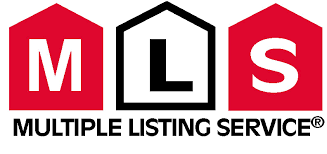The Ultimate Real Estate Marketing Plan for Listings: A Step-by-Step Guide
In today’s fast-paced and technologically driven world, having a solid real estate marketing plan is more crucial than ever. With an increasing number of potential buyers turning to online platforms, agents need to adapt their strategies to stay ahead of the competition. This comprehensive step-by-step guide aims to provide you with the ultimate real estate marketing plan for listings, helping you attract potential buyers, showcase your properties, and ultimately close more deals.
Key Takeaways
Real estate agents must adapt their marketing strategies to the digital age and identify target audiences through demographics, preferences, and pain points.
Crafting a unique selling proposition (USP) is key for success in real estate. Maximize online exposure with MLS/listing websites, personal/company sites and social media marketing.
Utilize print materials, professional photography and virtual tours to engage potential buyers. Leverage your network and track performance metrics for optimization.
Understanding the Real Estate Marketing Landscape

The real estate marketing landscape has experienced significant shifts in recent years, with an increasing number of potential buyers turning to online platforms to find their dream homes. For agents to stay relevant and effectively reach their target audience, adapting their marketing strategies to the changing landscape is necessary. A well-rounded real estate marketing plan should incorporate:
Various marketing ideas
Audience targeting
Budgeting
Key performance indicators (KPIs)
In this digital age, real estate agents have access to a wealth of advertising options. These include both print and digital marketing. Keeping abreast of the current marketing landscape and tweaking strategies in response allows agents to maintain their competitive edge and thrive in the dynamic real estate business, including real estate sales.
Identifying Your Target Audience

Identifying your target audience is a critical step in creating an effective real estate marketing plan. Tailoring your marketing efforts to resonate with prospective buyers and generate valuable leads requires a focus on demographics, preferences, and pain points.
Demographics
Demographic segmentation in real estate marketing involves dividing the target market into smaller groups based on characteristics such as:
Age
Gender
Marital status
Family size
Income
Education
These factors play a significant role in influencing home buying decisions. For instance, age can inform preferences and priorities, income can affect affordability, and location can influence access to amenities and desirability.
According to recent data, the mean age of first-time homebuyers in the United States is 36 years old. Understanding your target audience’s demographics enables the creation of more personalized and effective marketing campaigns that resonate with potential buyers.
Preferences
Potential buyers have specific preferences when it comes to the features and amenities they desire in a property. Common preferences include:
Updated kitchens and bathrooms
Open floor plans
Ample storage space
Proximity to high-quality educational institutions, healthcare centers, and grocery stores
Exterior design styles such as traditional, contemporary, and transitional
Electricity for heating and cooling
Identifying client preferences in real estate requires:
Comprehensive market research
Active listening to clients to record their preferences and requirements
Maintaining open and honest communication
Providing frequent updates on potential issues
Creating a more targeted and effective marketing plan that appeals to qualified buyers necessitates understanding and addressing client preferences.
Pain Points
In addition to demographics and preferences, it’s crucial to consider the pain points that potential buyers face during the home buying process. Common challenges include:
Affordability
Conveyancing issues
Lack of inventory
Selection of a broker
Agents can address these pain points through various strategies, such as:
Providing proactive and efficient communication
Being transparent and candid about the realities of the market
Applying UX research methods to identify and prioritize pain points
Addressing pain points in your marketing efforts helps build trust with potential buyers and streamline the home buying process for clients.
Crafting a Unique Selling Proposition (USP)
In today’s competitive real estate market, crafting a Unique Selling Proposition (USP) is essential for standing out. This is how you attract your ideal clients. A USP is a quality that distinguishes your brand from its competitors and highlights your unique value proposition.
Successful real estate USPs may include:
Focusing on a particular niche market
Delivering superior customer service
Utilizing unique marketing approaches
Possessing extensive expertise in a certain area
Providing a streamlined buying or selling experience
Regularly revisiting and refining your USP ensures it stays relevant to your target audience, aiding in lead and sales generation.
Maximizing Online Exposure

Maximizing online exposure is crucial for reaching potential buyers and generating leads. This includes:
Listing properties on MLS and other websites
Creating personal and company websites
Leveraging social media marketing to engage with your target audience and showcase your listings effectively.
MLS and Listing Websites

Listing properties on MLS and other websites is essential for reaching a wider audience of potential buyers. A well-crafted MLS Description serves as the foundation for listing properties on various platforms. These include Facebook, LinkedIn, and other online channels. Creating a compelling MLS Description that captures the attention of interested buyers involves prioritizing non-obvious features, noting recent replacements and remodels, and adhering to character limitations.
In addition to MLS, it’s important to list your properties on other websites, such as Zillow and Trulia. These platforms can provide additional exposure and help you reach a broader audience of potential buyers. Creating a profile on these websites can also enhance your professional image and maximize your listing’s exposure.
Personal and Company Websites
Creating personal and company websites is another essential aspect of maximizing online exposure for your real estate listings. A mobile-optimized real estate website serves as the focal point of your entire marketing strategy. It also offers a seamless web experience for potential customers. Listings should be prominently featured on your website and kept up-to-date. Provide comprehensive details about each property, such as dimensions, lot size, and included items.
To make your website stand out, consider incorporating unique features, such as a mortgage calculator or an interactive map showcasing nearby amenities. Providing a user-friendly and informative website facilitates engagement with potential buyers and effective showcasing of listings.
For more on creating a real estate agent website, see our blog post: https://www.quickcommissionadvance.com/blog/a-comprehensive-guide-to-creating-a-real-estate-website-in-2023/
Social Media Marketing
Social media marketing plays a significant role in real estate marketing, as it facilitates generating real estate leads and listing promotion. By crafting strategic descriptions and tailoring posts to specific platforms, you can maximize the effectiveness of your social media presence and explore real estate marketing ideas.
Utilizing social media PPC ads on search engines such as Google can help you reach a broader audience and generate more leads. Additionally, you can incorporate virtual open houses and other interactive content on your social media channels, including local Facebook groups, to engage with potential buyers and showcase your listings. Leveraging social media marketing expands your reach and attracts more interested buyers to your properties.
Utilizing Print Marketing Materials

While digital marketing plays a significant role in real estate marketing, print marketing materials, such as postcards, flyers, and brochures, are still effective for reaching local buyers and showcasing your listings. Direct mail, for instance, allows you to target specific neighborhoods and surrounding areas, providing potential buyers with tangible marketing materials that can be easily shared and saved.
In addition to direct mail, other print advertising options include newspaper display ads and billboards. These traditional advertising methods have been shown to effectively grab the attention of potential buyers and prompt action more so than digital ads. By incorporating a mix of both digital and print marketing materials, you can maximize your reach and appeal to a diverse range of potential buyers.
Professional Photography & Virtual Tours

High-quality photography and virtual tours are crucial for attracting potential buyers and showcasing your listings in the best possible light. Property photos are often the first point of contact for potential buyers, making professional photography an essential component of your real estate marketing plan.
Virtual tours, on the other hand, provide potential buyers with an immersive experience of the property without the need for a physical visit. Incorporating professional photography and virtual tours into your marketing materials effectively showcases your listings, engages with potential buyers, and ultimately leads to more leads and sales.
Hosting Open Houses & Events

Hosting open houses and events is a great way for agents to engage with potential buyers, showcase their listings, and capture valuable leads. Traditional open houses involve placing directional signs and providing refreshments to entice potential buyers to visit the property. Virtual open houses, on the other hand, offer a live, personal tour of the property via Facebook, Instagram, or Zoom, allowing potential buyers to explore the property from the comfort of their own home.
In addition to open houses, agents can host home-buying workshops and local partnership popups to provide potential buyers with valuable information and a more immersive experience of the property. Hosting events and open houses allows agents to engage effectively with prospective buyers and showcase their listings in a more personal and interactive manner.
Leveraging Your Network

Your personal and professional networks can be a goldmine for generating leads and referrals for your listings. By collaborating with other agents, networking within your brokerage, and attending training and networking events, you can expand your list of potential clients and boost your chances of success in the real estate business.
Additionally, don’t be shy about asking for referrals from your network. Maintaining a friendly tone and including a reminder in closing or follow-up emails can encourage your contacts to promote your listings through social media, emails, and in-person events. Leveraging your network generates more leads and grows your real estate business.
Tracking & Measuring Marketing Performance

Tracking and measuring the performance of your marketing efforts is essential for optimizing your strategies and ensuring the best possible results. Evaluating metrics, such as website traffic, social media engagement, and lead generation, can help you determine if your marketing plan is meeting the established KPIs.
Regularly monitoring your marketing metrics and adjusting strategies based on performance refines your marketing plan and helps achieve your goals more effectively. Keeping a close eye on your marketing performance allows you to continually optimize your efforts, ensuring you stay ahead of the competition and provide the best possible results for your clients.
Adapting Your Marketing Plan

The real estate market is constantly evolving, making it crucial to adapt your marketing plan based on performance metrics and changing market conditions. Customizing your marketing plan to suit:
Your client
Your budget
Your property
Your market
ensures that your strategies remain relevant and effective.
Regularly revisiting and refining your marketing plan allows you to:
Stay ahead of the competition
Achieve your objectives
Continually adapt your strategies
Provide the best possible service to your clients
Reach your full potential as a real estate agent
Summary
In conclusion, a comprehensive and adaptable real estate marketing plan is crucial for success in today’s competitive market. By understanding the marketing landscape, identifying your target audience, crafting a unique selling proposition, maximizing online exposure, utilizing print marketing materials, leveraging professional photography and virtual tours, hosting open houses and events, leveraging your network, tracking and measuring marketing performance, and adapting your marketing plan based on performance metrics and changing market conditions, you can achieve your goals and grow your real estate business. Stay ahead of the competition and provide the best possible service to your clients by following this ultimate step-by-step guide to real estate marketing for listings.
Frequently Asked Questions

How do I market my real estate listing?
Market your real estate listing by leveraging social media, amplifying the marketing with advertising, claiming listings on major portals, sending mailers to the local community, creating a single property site and sharing listing information with other agents. Brand your listing across multiple channels for maximum visibility.
How do I write a marketing plan for real estate?
Creating an effective marketing plan for real estate requires identifying a target audience, clarifying the message and goals, reviewing competitors, determining what sets you apart, organizing a budget, determining media and distribution channels, setting milestones, and creating a timeline.
What are the 4 P’s of marketing in real estate?
The 4 P’s of marketing in real estate are Product, Promotion, Price, and Place – making up the marketing mix.
How do I promote my new listing?
Share your listing on social media, promote it on real estate aggregator sites, create a video tour of the property, enhance the listing with additional information, blog about your listings, feature your listing on your home page and make sure you have a mobile responsive site – these are all great ways to get your listing to the top!
What are the key components of a real estate marketing plan?
A real estate marketing plan should include audience targeting, marketing strategies, budgeting, and KPIs to ensure the success of your campaigns.







